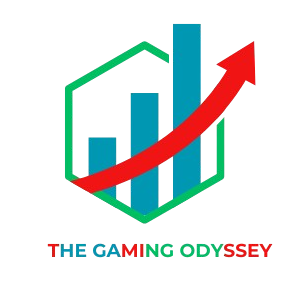In recent years, the world of gaming has transcended its status as a mere form of entertainment to become a cultural juggernaut, influencing everything from social interactions to economic trends. From the humble beginnings of pixelated adventures to the immersive virtual worlds of today, gaming has evolved into a multifaceted phenomenon that pusat maxwin permeates nearly every aspect of modern life.
Cultural Impact
Gaming has emerged as a dominant cultural force, shaping the way people communicate, socialize, and express themselves. Online gaming communities have become virtual meeting places where individuals from diverse backgrounds come together to collaborate, compete, and form lasting friendships. Whether it’s teaming up with friends in a multiplayer shooter or embarking on epic quests in massive online role-playing games, gaming has fostered a sense of camaraderie and belonging among millions of players worldwide.
Moreover, gaming has become an integral part of popular culture, with video game characters, narratives, and references permeating movies, television shows, music, and literature. From the iconic plumber Mario to the legendary Master Chief, gaming icons have achieved iconic status and become symbols of a global cultural phenomenon.
Economic Influence
Beyond its cultural significance, gaming has emerged as a powerful economic force driving innovation, investment, and growth. The video game industry generates billions of dollars in revenue annually, rivaling and often surpassing other entertainment sectors such as film and music. From indie studios to multinational corporations, game developers are continually pushing the boundaries of technology and creativity to deliver groundbreaking experiences to players worldwide.
Furthermore, gaming has spurred the growth of ancillary industries such as esports, streaming platforms, and merchandise sales. Esports, or competitive gaming, has evolved into a billion-dollar industry with professional players, teams, and tournaments drawing millions of viewers and lucrative sponsorship deals. Streaming platforms like Twitch and YouTube Gaming have become virtual arenas where gamers showcase their skills, interact with fans, and monetize their content through ads, subscriptions, and donations. Additionally, the popularity of gaming merchandise, including clothing, accessories, and collectibles, has created new revenue streams for companies and independent creators alike.
Social Implications
While gaming has brought people together and fostered a sense of community, it has also sparked debates surrounding issues such as addiction, online harassment, and representation. Concerns about the addictive nature of video games and their potential impact on mental health have prompted calls for greater regulation and awareness. Likewise, instances of toxic behavior and harassment within gaming communities have raised questions about inclusivity, diversity, and online safety.
Moreover, the representation of gender, race, and identity in video games has become a focal point for discussions about diversity and inclusivity in the industry. Critics argue that many games perpetuate stereotypes and marginalize certain groups, while advocates push for greater representation and inclusion in both characters and developers.
Despite these challenges, gaming continues to evolve and adapt, reflecting the changing dynamics of society and technology. As virtual reality, augmented reality, and other emerging technologies redefine the boundaries of gaming, the influence of this medium will only continue to grow, shaping the way we play, work, and interact in the digital age.
